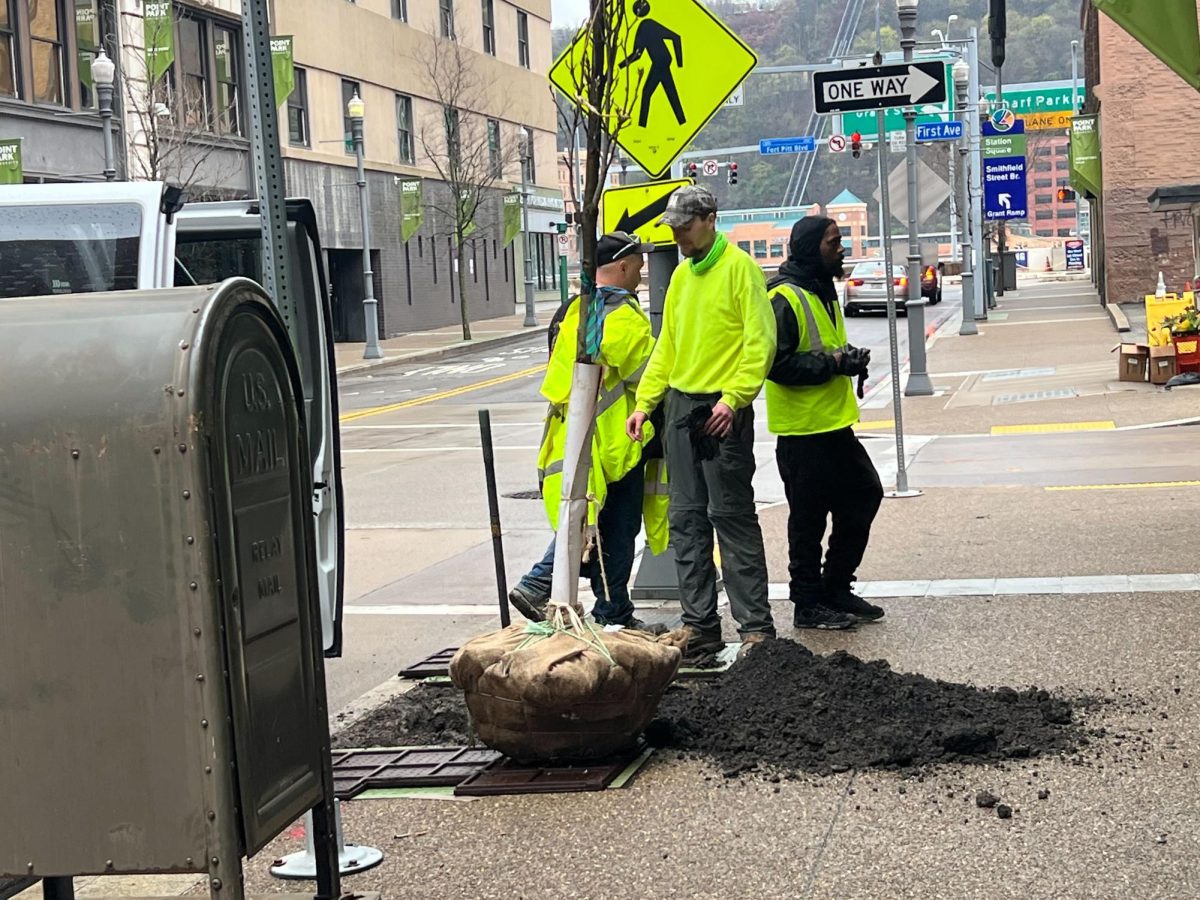When Alyssa Knierim heads to Millvale, Pa. to work the polls in November, she and her experienced co-workers will see many of the same people who come to vote every year, mostly the elderly.But if the state’s law requiring all voters to bring a form of photo identification stays, Knierim, a junior political science major at Point Park University, says many of these elderly people, along with the poor, will have a difficult time getting to an office of The Pennsylvania Department of Transportation (PennDOT) for an ID.Freshman cinema production major Hannah Meholick believes, however, that voter fraud is important to prevent, and that authorities should reach out to all groups by making IDs more readily available.“They should make it easier to get one, and make people more aware of it, and maybe when someone comes without an ID, they can give them the information they need to get one,” Meholick said in the library Friday. After a judge denied their arguments against the voter ID law, members of the American Civil Liberties Union of Pennsylvania (ACLU) and other parties will be fighting against Act 18 next week before the Supreme Court of Pennsylvania. Although the state authority and courts believe requiring the voters to have an ID does nothing more than protect against voter fraud, the ACLU argued in their appeal that the lower Commonwealth Court was incorrect in stating the law would cause “inevitable” rather than “immediate” harm.“I think it’s an infringement on our basic rights as American citizens. If we are a government for and of, and by the people, the people should be able to participate,” Knierim said in a phone interview Friday. “It shouldn’t be that hard to vote and for some people it is, especially elderly people.”In March of this year, Gov. Tom Corbett signed Act 18 making it a law for all voters to have a valid ID with them when they head to the polls. About two months after signing the bill the ACLU and other groups filed suit against the state in order to prevent the law from being enforced for this year’s elections.“We believe this is unconstitutional. We should not be putting up a barrier to voting and under this law are people who are not going to be able to get the ID necessary or people who won’t know that they need the ID until they show up at the polls and don’t have the right ID,” Associate Director of the ACLU Sara Mullen said in a phone interview Friday.Those against the law feel it is unfair to the elderly, students, minorities and others because they may not have as much access to obtaining valid identification. PennDOT offers IDs free of charge for those who do not have one; however, Mullen said that this is not always helpful.“To get the acceptable ID you have to make at least one, sometimes more, trips to PennDOT, so for the elderly this is very difficult. Their polling place might be in their building, for instance, so they have no problem going to go vote, but they do have a problem going to PennDOT,” Mullen said. “Sometimes they don’t even have a single PennDOT center … and a few other counties only have them open one or two days.”For students, Act 18 may be an issue if their student ID does not have an expiration date listed on it which, according to Mullen, is a requirement for use at the polls.Knierim said she had one differing opinion from those arguing against the law by claiming the law would not make it harder for students to vote.“As long as students have a photo ID from their school with an expiration date, they’re fine,” Knierim said. “If you are a student, you have your student ID on you all the time; it shouldn’t be a problem for students as much as I disagree with it.”In August, Commonwealth Court Judge Robert Simpson allowed the law to pass on after denying the ACLU’s injunction to stop the law before the November elections. In Simpson’s 70-page opinion, he noted specific reasons why the law should still stand despite arguments made against it. Judge Simpson referenced throughout his opinion the Indiana case where having a voter ID law was also questioned.One argument raised by the ACLU and other plaintiffs included whether or not voter fraud was really an issue. Simpson recounted in his opinion how although voter ID fraud had not occurred in the state of Indiana, the law was still upheld. He concluded that because of this, “the absence of proof of in-person voter fraud in Pennsylvania is not by itself dispositive.”Simpson also stated that the plaintiffs did not meet all six of the standards required when filing an injunction. One of those standards specified was proving that the law will cause immediate and inevitable harm through disenfranchisement, or depriving the legal right of a voter.“Petitioners did not establish … that disenfranchisement was immediate or inevitable. On the contrary, the more credible evidence on this issue was that offered through the Commonwealth witnesses,” Simpson wrote.The ACLU fought back against Simpson and the lower court regarding this issue in their legal brief filed last Thursday.“The court below committed legal error by requiring the alleged irreparable harm to be ‘inevitable.’ The standard is ‘immediate,’ and not ‘inevitable.’ The court below abdicated its duty to assess whether the greater harm would result from granting or denying the injunction,” those against the law wrote in the brief.Some other issues Simpson raised included discrepancy over whether or not the law is facially unconstitutional. According to Simpson, the plaintiffs needed to prove that the law was unconstitutional in all cases, not only applied circumstances.
Breaking News











